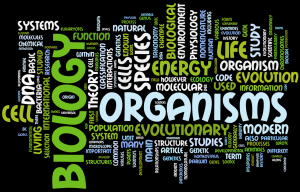How will a small group of young men and women learn Biology in a self directed way, well enough to deliver a series of science challenges to others?
This was the difficult problem assigned to Launchpad Eagles, who must not only master High School Biology, but design a Quest for Middle and Elementary School Eagles.
For the last several weeks LP Eagles have been immersed in an overview of Biology, with one test group devouring forty Crash Course Biology videos and a second test group diligently working through a thousand page Biology textbook. Three times weekly , each group is meeting to discuss lessons learned, heroes discovered and questions unearthed.
Why such intense work, under such ambiguity and pressure? Because as future leaders our Eagles will tackle difficult assignments under great ambiguity, where they’ll need to survey a broad area of knowledge, searching for information to use or the skills they will need to take action, before diving deep into a specialty or crafting a solution.
Much like an airplane pilot training in a simulator for unknown and unknowable emergencies, they are learning what it feels like to survey and synthesize a broad subject; identify areas of interest; and then to take action on a real world problem. They also are learning to document and keep track of their work and the important questions that have been raised, just like real scientists.
Proving Competence
Last week, we had our first major review, a Cambridge style Socratic exam with questions like:
Is life on earth all about organisms “not dying” and reproducing? If so, do philosophy, art and spiritual questions matter at all? If not, how do these areas relate to Biology?
Has the theory of evolution been proven? Be as specific as possible.
Who have been the three greatest Biology heroes you have discovered, and what made each a great scientist? Was it a special gift, early childhood, a chance occurrence or just being in the right place at the right time? Which parts of their “callings” would appeal to you? Which would not?
What is the best way to think about the field of Biology:
- Important systems that interact
- Early to late evolution
- Small to large organisms
- Similarities and differences between life forms.
What is the most amazing Biological discovery or theory?
- Darwin and natural selection
- DNA
- Something else.
What’s the most important Big Idea in Biology and why?
Big Idea 1: The process of evolution drives the diversity and unity of life.
Big Idea 2: Biological systems utilize energy and molecular building blocks to grow, to reproduce, and to maintain homeostasis.
Big Idea 3: Living systems store, retrieve, transmit, and respond to information essential to life processes.
Big Idea 4: Biological systems interact, and these interactions possess complex properties.
What skills or knowledge does the average person need to know about Biology to enrich his or her daily life?
If you had to spend the next ten years studying a one area in Biology, what would it be?
The Results
While our Eagles do need a basic vocabulary in Biology, we do not expect them to memorize hundreds of technical terms or facts. Far more important is developing an understanding of the basic processes, systems, relationships and analogies – and most importantly – interesting areas and questions for further research.
How did they do in the oral examination? Better than expected, with lots more work to come.
Coming next: Each will choose a Biological Specialty and dive deeply into it, as we begin to work on the Quest.
[1] Note: memorizing these questions won’t help– the actual questions will differ.


